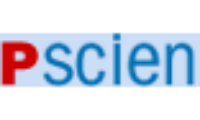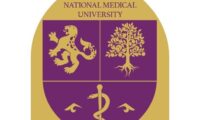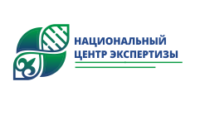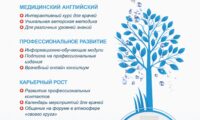Получена: 10.02.2024/ Принята: 28.04.2024/ Опубликована online: 29.04.2024
УДК618.3:616-053.32
DOI: 10.53511/pharmkaz.2024.99.39.021
Б.А.Абентаева 1, Б.Т.Чарипова1, Ж.К.Тлеугалиева 1, З.С. Тобылбаева1
1Корпоративный Фонд «University Medical Centre”, Астана, Казахстан
ВЛИЯНИЕ МИКРОБИОТЫ НА ЗДОРОВЬЕ НЕДОНОШЕННЫХ ДЕТЕЙ:
ПРОФИЛАКТИКА НЕКРОТИЗИРУЮЩЕГО ЭНТЕРОКОЛИТА И ПЕРСПЕКТИВЫ ПРОТЕКЦИИ
Резюме. В настоящем литературном обзоре представлен анализ воздеи ствия кишечнои микробиоты на
состояние здоровья недоношенных детеи с акцентом на профилактике некротизирующего энтероколита (НЭК)
и механизмах протекции. Освещены исследования, направленные на оценку воздеи ствия грудного молока и
пробиотиков, в том числе Bifidobacterium BB-12 и Streptococcus thermophilus TH-4, на микробныи баланс и общее
состояние новорожденных с недостаточнои массои тела. Рассмотрены ключевые аспекты, имеющие важное
значение для разработки эффективных стратегии в профилактике НЭК и снижения инвалидизации в даннои
уязвимои категории детского населения Республики Казахстан.
Ключевые слова: недоношенные, ВОЗ, кишечная микробиота, НЭК, грудное молоко, пробиотики, профилактика.
СПИСОК ЛИТЕРАТУРЫ
1 Fitzgibbons SC, Ching Y, Yu D et al. Mortality of necrotizing enterocolitis expressed by birth weight categories. J.
Pediatr. Surg., 2009, 44: 1072-1076.
2 Berrington JE, Hearn RI, Bythell M et al. Deaths in preterm ifants: changing pathology over 2 decades. J. Pediatr., 2012,
160(1): 49-553.
3 Yee WH, Soraisham AS, Shan VS, et al. Incidence and timing of presentation of necrotizing enterocolitis in preterm
infants. Pediatrics, 2012, 129(2).
4 Maheshwari A., Kelly D.R., Nicola T. TGF-beta (2) suppresses macrophage cytokine production and mucosal
inflammatory responses in the developing intestine. Gastroenterology. 2011; 140 (1): 242—53.
5 Nafday S.M., Chen W., Peng L., Babyatsky M.W., Holzman I.R., Lin J. Short-chain fatty acids induce colonic mucosal
injury in rats with various postnatal ages. Pediatr. Res. 2005; 57 (2): 201—4.
6 Lin J., Nafday S.M., Chauvin S.N. Variable effects of short chain fatty acids and lactic acid in inducing intestinal mucosal
injury in newborn rats. J. Pediatr. Gastroenterol. Nutr. 2002; 35 (4): 545—50.
7 Lemons J.A., Bauer C.R., Oh W., Korones S.B., Papile L.A., Stoll B.J. et al. Very low birth weight outcomes of the National
Institute of Child Health and Human Development Neonatal Research Network, January 1995 through December 1996.
NICHD Neonatal Research Network. Pediatrics. 2001; 107: E1.
8 Brooks B., Firek B. A., Miller C. S. et al. Microbes in the neonatal intensive care unit resemble those found in the gut of
premature infants. Microbiome. 2014; 2: 1.
9 Schwiertz A., Gruhl B., Lobnitz M., Michel P., Radke M., Blaut M. Development of the intestinal bacterial composition in
hospitalized preterm infants in comparison with breast-fed, full-term infants. Pediatr Res. 2003; 54: 393–9.
10 Madan J. C., Salari R. C., Saxena D. et al. Gut microbial colonisation in premature neonates predicts neonatal sepsis.
Arch Dis Child Fetal Neonatal Ed. 2012; 97: F456–62.
11 Wang Y., Hoenig J.D., Malin K.J., Qamar S., Petrof E.O. et al. 16S RNA genebased analysis of fecal microbiota from
preterm infants with and without necrotizing enterocolitis. ISME J. 2009; 3: 944—54.
12 Coppa GV, Zampini L, Galeazzi T, Facinelli B, Ferrante L, Capretti R, Orazio G. (2006). Human milk oligosaccharides
inhibit the adhesion to Caco-2 cells of diarrheal pathogens: Escherichia coli, Vibrio cholerae, and Salmonella fyris. Pediatr
Res. 59: 377–382.
13 Fernandez L, Langa S, Martin V, et al. The human milk microbiota: origin and potential roles in health and disease.
Pharmacol Res. 2013; 69(1):1–10. doi: 10.1016/j.phrs.2012.09.001.
14 Sullivan S, Schanler RJ, Kim JH, et al. An exclusively human milkbased diet is associated with a lower rate of
necrotizing enterocolitis than a diet of human milk and bovine milk-based products. J Pediatr. 2010;156(4):562–567.
152
15 Mai V, Young CM, Ukhanova M, et al. Fecal microbiota in premature infants prior to necrotizing enterocolitis. PLoS
One. 2011;6(6):e20647.doi: 10.1371/journal.pone.0020647.
16 Breastfeeding and the use of human milk. Pediatrics. 2012; 129:e827–e841. doi:10.1542/peds.2011-3552.
17 Bezirtzoglou E., Tsiotsias A., Welling G. W. Microbiota profile in feces of breast- and formula-fed newborns by using
fluorescence in situ hybridization (FISH). Anaerobe. 2011; 17: 478–482.
18 Herrmann K., Carroll K. An exclusively human milk diet reduces necrotizing enterocolitis. Breastfeeding Med. 2014; 9
(4): 184—90.
19 Patel B., Shah J. Necrotizing enterocolitis in very low birth weight infants: A systemic review. ISRN
Gastroenterol. 2012; Article ID 562594, 7 p.
20 Chan K.L., Saing H., Yung R.W. et al. A study of pre-antibiotic bacteriology in 125 patients with necrotizing
enterocolitis. Acta Paediatr. 1994; Suppl. 396: 45-8.
21 van Acker J., de Smet F., Muyldearmans G. et al. Outbreak of necrotizing enterocolitis associated with Enterobacter
sakazakii in powdered milk formula. J. Clin. Microbiol. 2001; 39: 293—7.
22 Hunter C.J., Singamsetty V.K., Chokshi N.K. et al. Enterobacter sakazakii enhances epithelial cell injury by inducing
apoptosis in a rat model of necrotizing enterocolitis. J. Infect. Dis. 2008; 198: 586—93.
23 Groer, M.; Luciano, A.A.; Dishaw, L.; Ashmeade, T.; Miller, E.; Gilbert, J. Development of the preterm infant gut
microbiome: A research priority. Microbiome 2014, 2, 38.
24 Alexander VN, Northrup V, Bizzarro MJ. Antibiotic exposure in the newborn intensive care unit and the risk of
necrotizing enterocolitis. J Pediatr. 2011; 159 (3):392–397. doi:10.1016/j. peds.2011.02.035.
25 Siggers J., Østergaard M., Siggers R., Skovgaard K., Mølbak L., Thymann T. et al. Postnatal amniotic fluid intake reduces
gut inflammatory responses and necrotizing enterocolitis in preterm neonates. Am. J. Physiol. Gastrointest. Liver Physiol.
2013. 304: G864—75.
26 Neu J. The microbiome and its impact on disease in the preterm patient. Curr Pediatr Rep. 2013;1(4):215–221. doi:
10.1007/ s40124-013-0031-7.
27 Patel B., Shah J. Necrotizing enterocolitis in very low birth weight infants: A systemic review. ISRN Gastroenterol.
2012; Article ID 562594, 7 p.
28 Deshpande G., Rao S., Patole S., Bulsara M. Updated meta-analysis of probiotics for preventing necrotizing
enterocolitis in preterm neonates. Pediatrics. 2010; 125: 921-30. [PubMed: 20403939].
29 Wang Q., Dong J., Zhu Y. Probiotic supplement reduces risk of necrotizing enterocolitis and mortality in preterm very
low-birth-weight infants: an updated meta-analysis of 20 randomized, controlled trials. J. Pediatr. Surg. 2012; 47: 241-8.
30 Tarnow-Mordi W.O., Wilkinson D., Trived I.A. Probiotics reduce all-cause mortality in necrotizing enterocolitis: it is
time to change practice. Pediatrics. 2010; 125 (5): 1068-70.
31 Rouge C., Piloquet H., Butel M.J., Berger B., Rochat F., Ferraris L. Oral supplementation with probiotics in very-lowbirth-weight preterm infants: a randomized, double blind, placebo-controlled trial. Am. J. Clin. Nutr. 2009; 89: 1828-35.


































